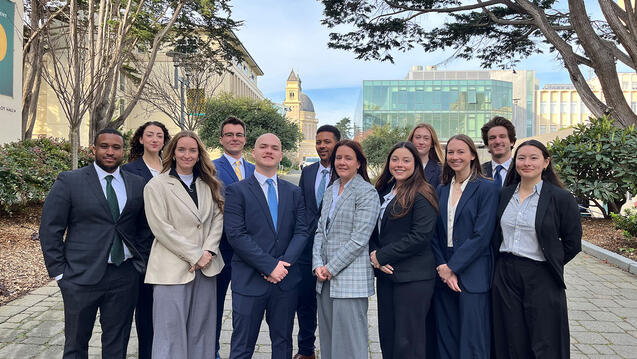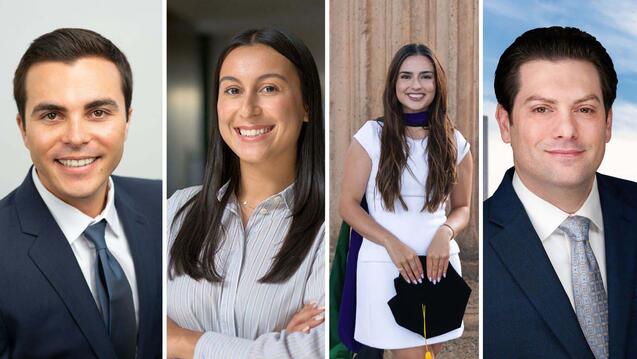The University of San Francisco School of Law Partners with Industry Leaders Accordance and Anthropic to Integrate AI Tools into Curriculum
SAN FRANCISCO (August 18, 2025) – As part of a continued effort to modernize and innovate legal education, the University of San Francisco School of Law will partner with Accordance and Anthropic to integrate generative artificial intelligence tools into the curriculum. In early 2025, the USF School of Law became the first law school in the country to embed genAI into the required first year curriculum through the Legal Research, Writing and Analysis Program. Now, students in both the JD and Graduate Tax Programs will use Accordance licenses and Anthropic’s Claude to better prepare for a professional landscape where tech fluency is increasingly critical.
The integration of AI tools will complement and enhance traditional instruction methods in Evidence, Professional Responsibility, Federal Income Tax, Employment Law, and Tax Writing, among other courses.
“This is about preparing students not just to understand the law, but to practice it in the world they’re entering,” stated USF School of Law Dean Johanna Kalb. “For our MLST and LLM in Taxation candidates, they’re working in the field, and we know AI is already transforming how professionals approach complex tax issues. We’re giving students the tools and context to use these technologies responsibly and effectively.”
Throughout each course, students will first build a strong foundation in traditional legal principles. Later, they’ll explore how generative AI can be used to navigate real-world scenarios, bridging academic knowledge with practical application.
In the Tax Research and Writing courses, students will continue to learn and apply conventional research techniques while also being introduced to AI as a supplementary tool. Using the Accordance platform, they will practice prompt engineering, conduct use-case analysis, and critically evaluate AI-generated content, learning not only how to harness AI’s efficiencies but also how to detect its limitations, including common “hallucinations” or inaccuracies.
“Today’s tax professionals don’t need to memorize every regulation; they need to know how to find, assess, and apply information in complex and fast-changing contexts,” said Professor Joshua Rosenberg. “These tools reflect that shift, and our curriculum is evolving to reflect it as well. The integration of AI broadens students’ toolkit, helping them recognize when and how to use AI effectively alongside more conventional techniques.”
Opinder Bawa, Vice President and Chief Innovation Officer, has been instrumental in bringing these technologies to USF. “By connecting with pioneering technology companies, we’re not just enhancing the curriculum. We’re equipping graduates to lead in a future where the collaboration between human judgment and machine intelligence is vital to addressing society’s most pressing challenges.”
USF School of Law students will begin accessing the new AI tools when the Fall 2025 semester begins.
About the University of San Francisco School of Law
Founded in 1912, the University of San Francisco School of Law educates skilled lawyers who graduate with the professional knowledge and theoretical foundation necessary to succeed in the legal profession. The USF School of Law offers a rigorous education with a global perspective in a diverse, supportive community. USF Law offers full- and part-time Juris Doctor programs that empower students to develop their analytical abilities, master legal writing and research skills, acquire a firm foundation of the law, explore an array of specialties, and refine their professional legal skills in practical settings. The law school also offers Master of Laws (LLM) programs in Taxation, Intellectual Property and Technology Law, and a general, customizable LLM (for foreign lawyers), and a Master of Legal Studies in Taxation (MLST) for non-lawyers. The USF School of Law is fully accredited by the American Bar Association and is a member of the Association of American Law Schools. For more information, visit usfca.edu/law.


